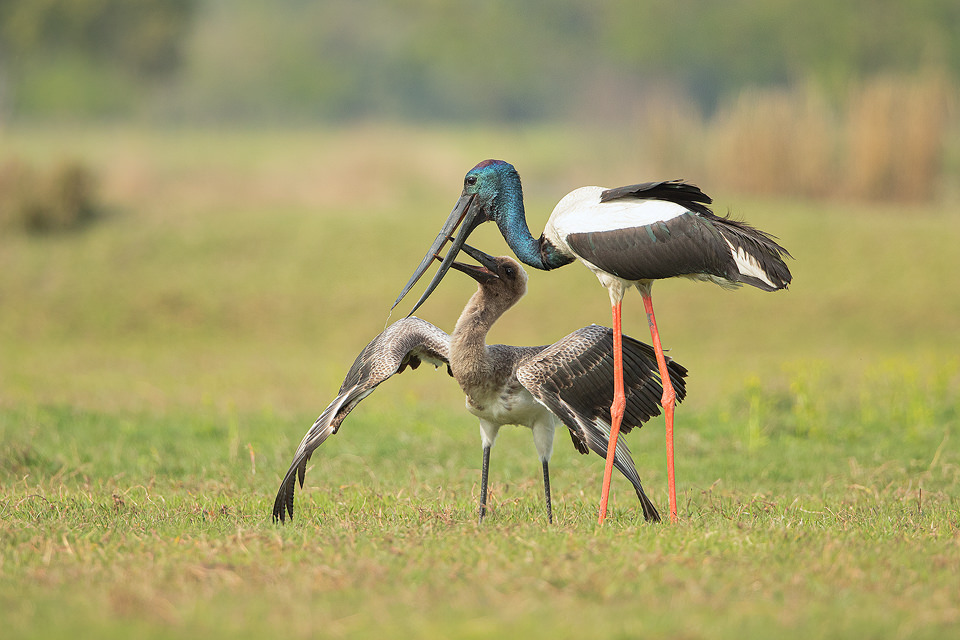Black-necked stork feeding Young
Male black necked feeding his youngster by regurgitating food. Uttar Pradesh, India.. The juvenile isn’t as small as it appears here and is actually sitting down to be fed. In fact juveniles of this age are almost the same size as the adults but still depend on the parents for much of their food!
About the Black-necked stork:
The Black-necked stork (Ephippiorhynchus asiaticus) is a wading bird in the stork family. These tall, long-necked birds can grow up to 135cm tall with a wingspan of 230cm from tip to tip. Adults have distinctive bluey-black iridescent feathers on the head and neck which give them their common name. They are sexually dimorphic, differentiated by their eyes; females are a striking yellow while the males are dark brown/black. Black necked storks favour areas with a large bodies of water such as floodplains of rivers and wetlands. Here they prey on, amphibians, fish, crustaceans, small water birds and insects.
Black necked storks can be found throughout the Indian subcontinent, Sri Lanka, Pakistan and scattered parts of South East Asia. A large population can also be found in Northern Australia and Papua New Guinea. They are classed as ‘Near Threatened in their range thanks to habitat loss, poaching and changes in agricultural practices.
The stork breeding season runs between March and May where strong and long lasting bonds are formed using a range of calls, grunts and clacks of their bills and intricate courtship dances. Their large nesting platforms are built high up in large trees and constructed using sticks, reeds and water plants, sometimes held together with mud.
You can find out more about Black-necked storks here.
